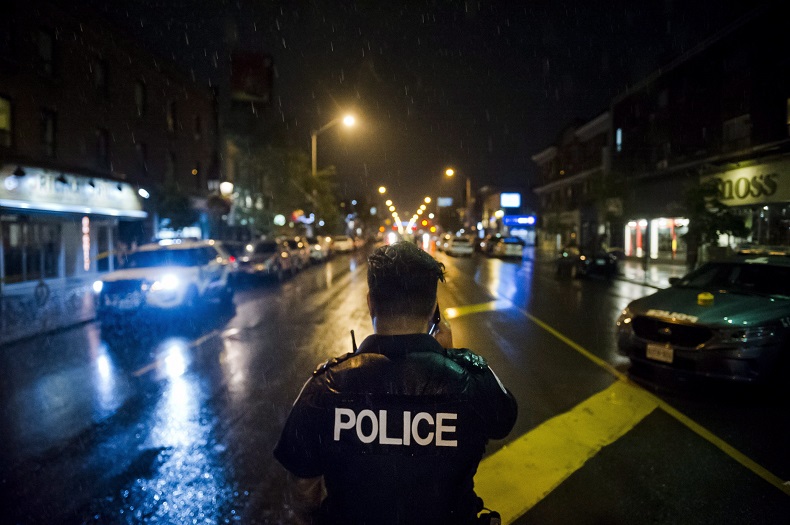What’s an appropriate level of marijuana consumption if a lot depends on your doing your job exactly right?

Police forces across the country have been wrestling with the question — not just as a law enforcement issue, but in setting rules for their own members.
An easy limit to enforce is not allowing consumption within 28 days of going on duty. (THC can be detectable up to 28 days after consumption.)
MORE: Want this weekly update delivered to your inbox? Sign up for Cannabis IQ.
Toronto police will enforce a 28-day limit, as will the RCMP. Edmonton police won’t allow officers to consume cannabis at all (though we could debate whether that’s actually stricter than a 28-day limit.)
Montreal police take a more tolerant approach, saying only that officers must be “fit for duty.” Federal correctional workers will have a 24-hour ban on consumption before going on duty.
The airlines face broadly similar issues. Air Canada and WestJet will ban employees in safety-sensitive positions, like flight crews and aircraft mechanics, from consuming pot at all.
WATCH: Flying high: rules surrounding passengers carrying cannabis at Canadian airports

Winnipeg’s hospital authority says only that employees “are required to report to work fit for duty and not impaired,” given that “there are currently no standards established for measuring the effects of cannabis.”
The military takes a nuanced approach, looking at the risks in the job a service member will do. Troops have a 24-hour ban before handling weapons or explosives, but a 28-day ban before serving on a submarine or as aircrew.
WATCH: What Canadians need to know about recreational marijuana come legalization

It’s tempting to err on the side of caution, but what’s reasonable?
Solomon Israel had a useful explainer in The Leaf. To summarize: even looking at the heaviest users, scientists can’t find the tiniest example of THC influence after seven days from use. At that point, the effects they’re detecting can only be picked up by sophisticated neuropsychological tests, and don’t necessarily matter in the real world.

Get breaking National news
WATCH: AGLC licenses 17 Alberta cannabis stores for Oct. 17

In brief:
- On Tuesday, the U.S. announced a major policy change — people who work in the Canadian marijuana industry would, on second thought, no longer be in danger from being banned for life from entering the United States.
- When will a cannabis-impaired driver be charged? Federal Justice Minister Jody Wilson-Raybould said Sunday it would have to be “on a case-by-case basis.” “Legalization is being rushed through without proper planning or consideration for the negative consequences,” opposition public safety and justice critics charged.
- From Global Edmonton’s Fletcher Kent, a reflection on cannabis’s slow journey into mainstream culture. (He talks to four bud trimmers, all senior citizens, who were recruited at the quilting group at the seniors’ centre in Peers, Alta. “Life’s a journey,” one observes.)
- Condo boards across the country have the thankless task of trying to regulate residents’ marijuana use.
- Calgary will see only two cannabis stores open on Wednesday: over 100 more applications are waiting for provincial approval. Businesses caught waiting in line are grumpy.

- Large majorities of Manitobans fear that police don’t have the tools to identify marijuana-impaired drivers, and that impaired driving will increase when marijuana becomes legal.
- Increasing numbers of young people are ending up in hospital for cannabis poisoning. The problem seems to have to do with grey-market edibles, which can be in appealing formats like soft candy.
- Warning signs are going up in airports across the country, warning people not to leave the country with their pot. But what are you supposed to do if you realize you have some that you should be getting rid of? Some U.S. airports have installed amnesty boxes, and Canadian airports are considering the same.
You asked:
- How will the legalization of recreational cannabis affect the medical cannabis market and its clients?
Canada’s national recreational cannabis industry will take years to take its final form, whatever that looks like. In the meantime, there’s been much talk of shortages, at least at first.
That’s a manageable and temporary problem if you’re ordering marijuana as a recreational drug, and more serious if you need it as medicine. Unfortunately, the same licensed producers that supply the medical market are now frantically scaling up to supply the recreational market, in many cases with exactly the same products.
These crunches will sort themselves out over time, but obviously, that doesn’t help with a problem right now. (We spoke to an expert who wondered if a shortage of medical cannabis could be made up through imports, which raises some interesting possibilities.)
So the short answer is: yes, shortages for medical users are a possibility. If you’re in that situation, please let us know through the contact form below.
Send us your questions



Comments
Want to discuss? Please read our Commenting Policy first.